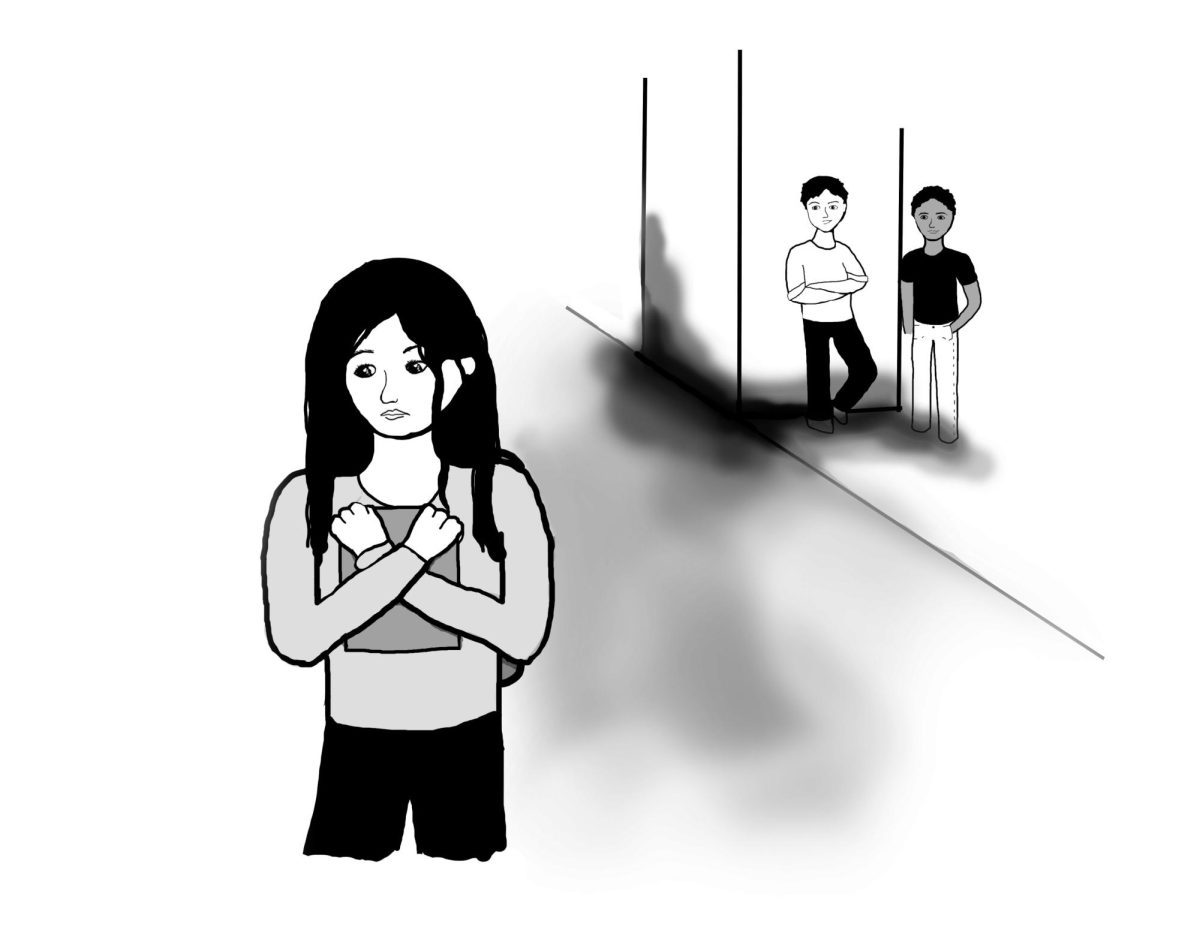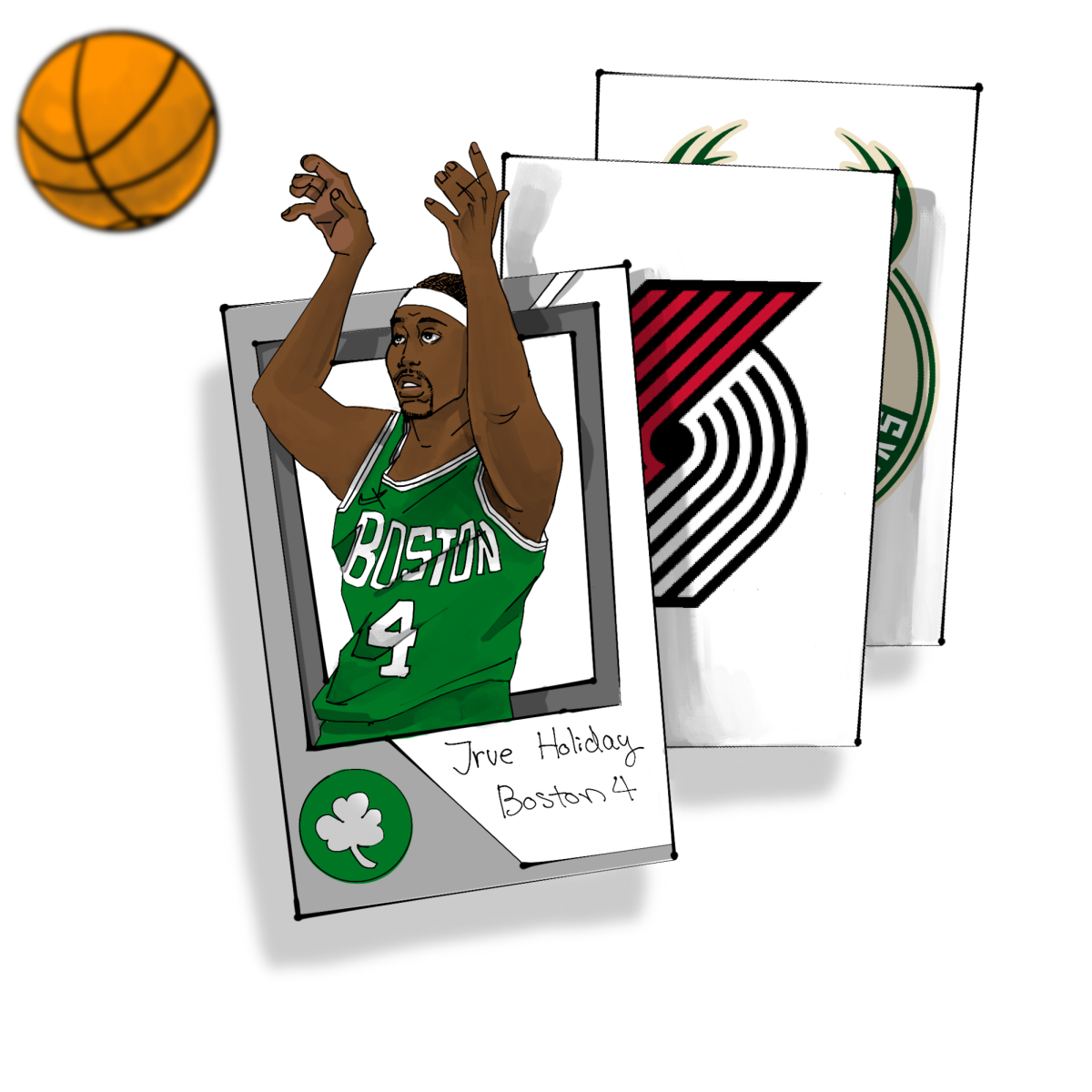 Junior Brandon Fennell sits on the floor of the science building hallway reading through a spread-out mess of papers covering a three square-foot arena, blocking the doorway to a lab where a woman with blue gloves sets up an experiment. Another student also reads through the papers scattered about the floor.
Junior Brandon Fennell sits on the floor of the science building hallway reading through a spread-out mess of papers covering a three square-foot arena, blocking the doorway to a lab where a woman with blue gloves sets up an experiment. Another student also reads through the papers scattered about the floor.
They are catching up on recent scientific literature outside the chemistry lab before beginning another day of research.
Fennell, along with senior Hannah Main, senior Bailey Arend, senior Kevin Chung and Assistant Professor of Chemistry Marion Götz, is currently experimenting on producing a protease inhibitor, a biochemical that will prevent the breakdown of proteins. This protease inhibitor could eventually become a treatment for Chagas disease, the leading cause of heart disease in South America, according to Fennell.
“Our lab conducts medicinal research in the beginning stages of drug discovery. We design potential drugs, we synthesize the molecules, and then we test them in vitro. The hardest part is the synthesis,” said Götz.
The synthesis and testing will become much easier with the introduction of the Nuclear Magnetic Resonance machine through a National Science Foundation grant garnered by Whitman earlier this year.
Without the NMR machine, they have no easy way to test each stage of the synthesis process to make sure that it works, explained Main and Arend. The NMR machine will allow them to easily identify their compound and make sure that the synthesis stays on track throughout the 13-step process necessary to create some of the protease inhibitor they are testing.
“Throughout the 13-step process, without an NMR, we have no sure way to tell if the reactions are working. We can compare our compound to previous reactions, but without detailed information about the chemical structure, we have to just hope for the best,” said Arend.
Because Fennell and the other students are developing a new possible drug, there is no easy way to tell if they are doing it correctly. However, for Fennell, the unknown quantity has its benefits.
“My favorite part of working in a lab is the idea that there is no right answer. You can’t just look it up in a book. You’re the first person or group of people to do this . . . It’s our job to figure out what the answer is,” Fennell said.
Fennell plans on attending graduate school in organic chemistry or a related field after graduating from Whitman, working for a few years in industry and then coming back to academia to be a professor.
Although a year younger than the other members of his team, they praise Fennell’s abilities.
“He’s an integral part of the lab. He’s a fast learner,” said Main.
Fennell, Main and Arend will present their research at the Regional Murdock Conference and the national meeting of the American Chemical Society.
















